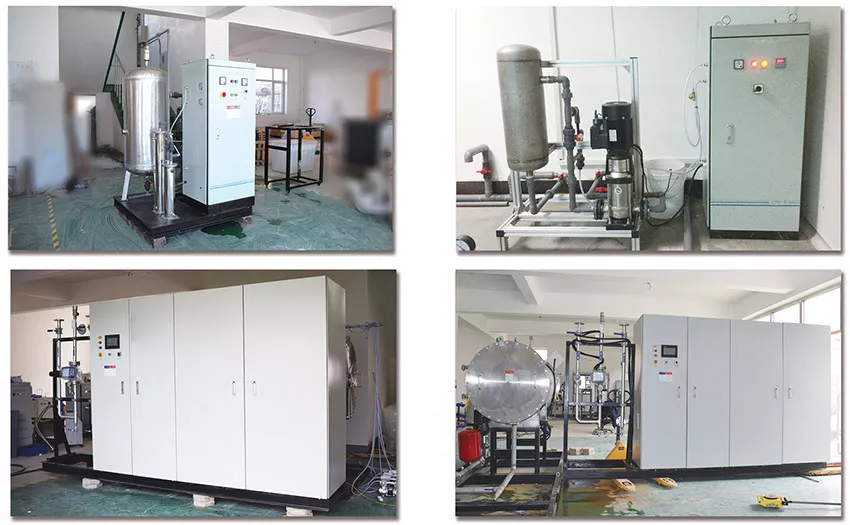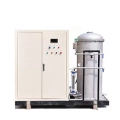Description
Working principle and application
Ozone sterilization principle
- Ozone is a strong oxidant, sterilization process is a biochemical oxidation reaction. O3 sterilization has the following three forms:
- Ozone can oxidize the decomposition of bacteria within the bacteria enzymes, SO that bacteria inactivated death.
- Directly with bacteria, viruses, destruction of their organelles and DNA, RNA, so that the metabolism of bacteria is destroyed, leading to bacterial death.
- Through the cell membrane tissue, invasive cells, the role of the outer membrane of the lipoprotein and the internal lipopolysaccharide, so that the occurrence of permeability loss of bacteria and dissolved.
Ozone application
- Sewage treatment, pure water disinfection, to COD and soon.
- Swimming pool water treatment.
- Livestock and poultry breeding water sterilization.
- Food organic treatment. improve the taste.
- Bleach bleaching treatment.
Product features
Application of ozone is based on its strong oxidizing capacity and bactericidal properties. The ozone can improve drinking water quality. It can be used for the disinfection of drinking water and removal color and odor from water, also can remove dissolved metal and organic impurities in water. Ozone is gradually replacing chlorine as the main means of drinking water disinfection now, because chlorine can be combined with organic matter in water, and the formation of chlorinated organic matter, it has been proved to be carcinogens, in nature is also difficult to be broken down. However, ozone treatment of water without residue, no harmful decomposition products, it is the best choice for the purification of drinking water.
Function
- Disinfect, such as killing microorganisms
- Remove odors
- Remove humus
- Improve the taste
- Oxidize iron and manganese
- Degrade pesticide
Industrial wastewater treatment
Organic matters with poor biochemical performance or toxic substances will be generated from dyeing, oil, pharmaceutical, paint, electronics, chemical, coating, waste disposal plant, food wastewater, PET wastewater and industrial wastewater. Ozone has strong oxidizability, which can discompose organic matters with poor biochemical performance, degrade toxic or harmful substances, remove water’s color and odors, discompose phenol and its derivatives in water, and improve the biodegradability of wastewater, making wastewater meet emission or reuse standard.

Compared with common organic chloride biocides, ozone has a strong effect, which can not only inhibit the growth of microbes, but continuously reduce organic impurities in system and impurities introduced by make-up water or impurities not being filtered (indicated by COD and AOX parameters). Meanwhile, there is no poor secondary reactions.
Product Description






